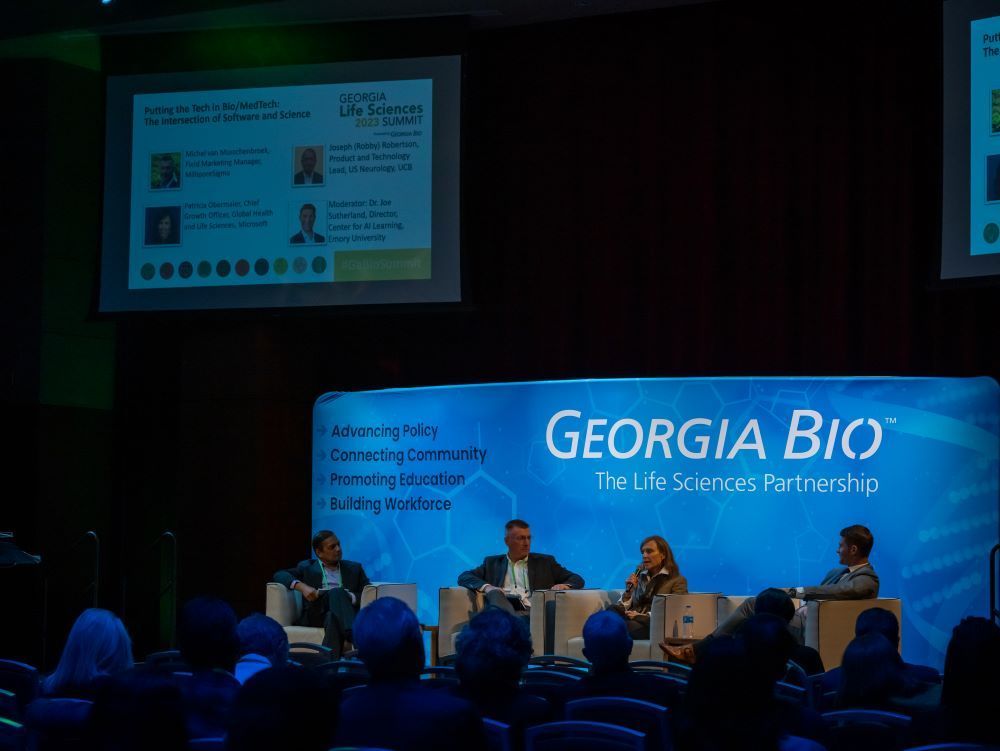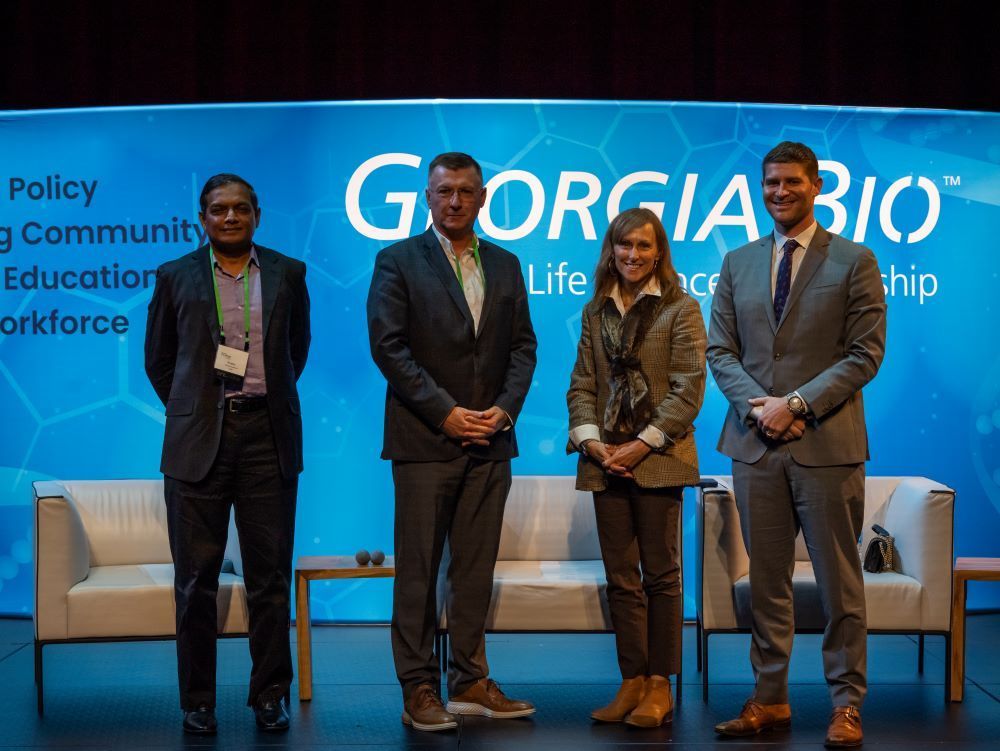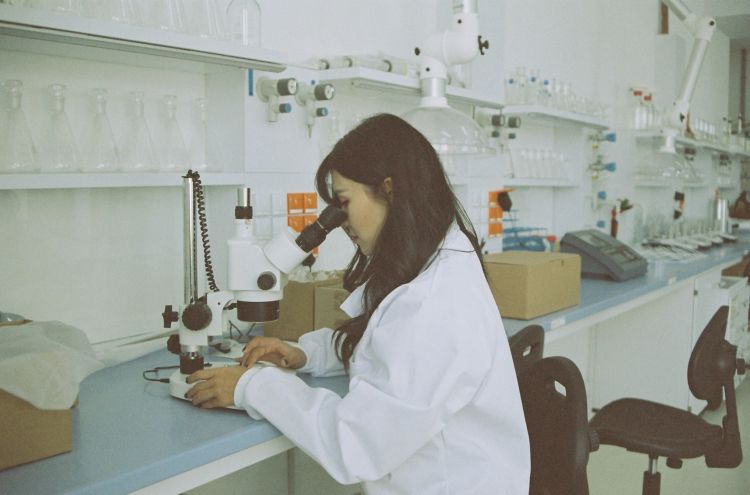Putting the Tech in Bio & MedTech

The convergence of life and data sciences promises to dramatically accelerate the pace of innovation and drug development. Georgia is emerging as a leader in combining these fields to address some of the most challenging problems in life sciences.
While generative AI is not ready to support clinical decision making, “Intelligent call centers, appointment setting, patient documentation, marketing content and co-pilots for other cumbersome tasks” are applications for AI in the life sciences across beneficiary types,” Microsoft Chief Growth Officer, Global Health and Life Sciences Patricia Obermaier said. “Summarizing a patient visit followed by the creation and translation where needed in simple language the patient can understand is a strong example of AI’s support potential in the care curriculum.
On the industry side, Patricia cited research that indicates 64% employees say they do not have enough time or energy to do their job, while 70% say they would delegate repetitive or mundane tasks to AI despite a measure of fear that AI may cost some employees their jobs.
“Understand that change is happening in two dimensions: interactions like migration from a keyboard to a mouse to natural language processing of information, and management of information as in large language models attempting to ‘reasoning on top of data,” Patricia said. “Can it hallucinate? Yes.”
Externally, but on topic, colleagues at Within3 shared , “Getting AI to successfully complete 90 percent of the work required for many common medical affairs tasks like reporting on and insights identification from advisory board committee meetings or congresses and social listening programs, while leaving 10 percent of the last mile to the expertise, critical thinking, nuance and intimacy of knowned based on real world experience to the professional, would represent a promise met by AI for med affairs.”
Where, then, are the current limits for technologies including generative AI in life science innovation?
Could a medical affairs team effectively use a combination of ‘typical’ plus generative AI right now to get 90% of the reporting and insights generation done from a high dollar advisory board meeting? Almost certainly. Could AI currently make clinical trial design more efficient thereby increasing the speed of enrollment and rate of retention? This is likely. Could a pharma manufacturer or CDMO use more advanced robotic technology for inventory management, materials handling or storage? Yes.
Will AI be capable of helping us discover new proteins without formulations? Perhaps. Will AI be capable of helping diagnose rare diseases? Perhaps.
In clinical practice, one of the most intriguing examples of AI being brought to bear in patient care comes from Washington Post Contributing Columnist Leana Wen who recently wrote
about Kaiser Permanente’s AI tool for clinical deterioration detection.
“Predictive algorithms have been built to account for a patient’s preexisting medical conditions, vital signs, laboratory tests, bedside nurse reports and other factors. And the tool receives hourly input from electronic medical records. If all this data reveals a significant risk of decline, an alert is issued.
“The key difference in Kaiser’s use of AI is what happens next. First, the alert is reviewed by an off-site team of nurses who examine what triggered it. Then, if the patient needs to be evaluated in person, they have the patient assessed by the hospital’s rapid-response team, which then works with the patient’s physician to determine next steps.
“From 2016 to 2019, this AI-powered alert system was rolled out to all 21 of Kaiser Permanente’s Northern California hospitals. Researchers then examined the outcomes of patients it flagged vs. those who would have triggered an alert if the system had been active at the time of their hospitalization. Their results, published in the New England Journal of Medicine , show there was a 16 percent lower mortality rate among patients who benefited from the AI tool. That’s equivalent to 520 deaths prevented per year.”
The FDA will always lead with risk when it comes to new technologies, therapeutics and diagnostics, Joseph (Robby) Robertson, Product and Technology Lead, US Neurology, UCB said at the Summit. Its view of software, which is ultimately connected to just about every technology, is still quite rigid. It will certainly not tolerate data for clinical decision making that may be prone to hallucination or bias.
Patricia advised finding safe spaces to test AI’s limits for life science and life science innovation can be highly productive as long as the guardrails are known and closely adhered to.
If you asked someone “What is Amazon?” 20 years ago, they would have told you it’s an online bookstore, Robby said. When it comes to technology including AI, life science is at that same intersection, or really just the starting block, where Amazon resided two decades ago. The best is yet to come.






